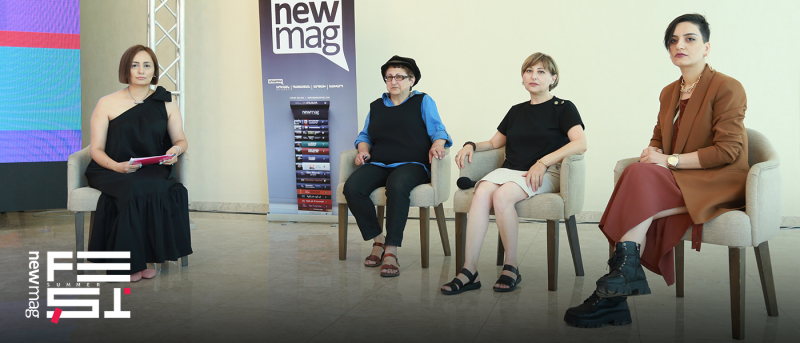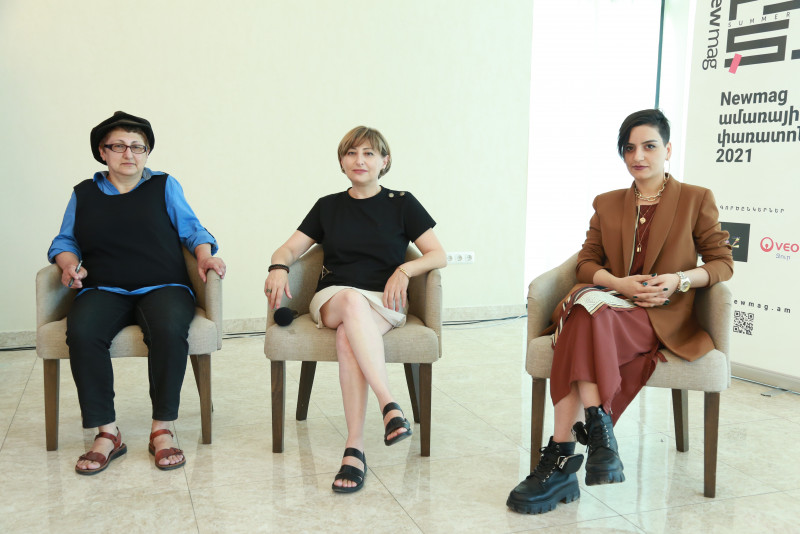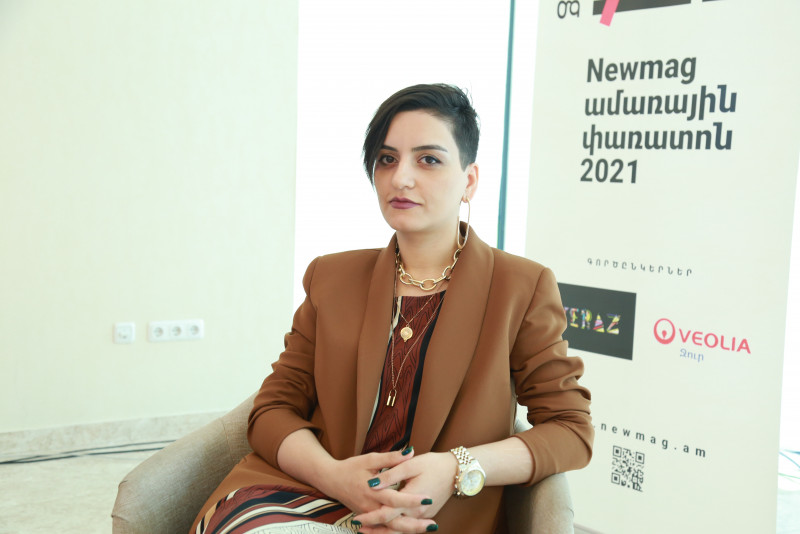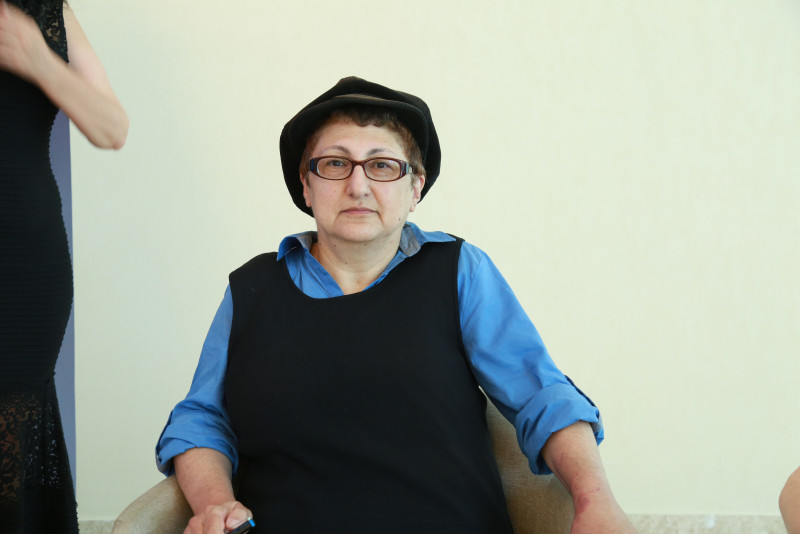[Newmag Summer Fest] The challenges of women writers in times of war and peace (photos, video in Armenian)

In 2021 Newmag and ARI literary agency launched “Zabel” international forum of women writers. The main goal of this platform is to provide women writers an international platform, where they can present the details of their literary path, including their
What are the main problems faced by women writers in Armenia and are those problems different from that of man writers? Poet Marine Petrosyan is assured that gender is not a defining factor here. “The main challenge for Armenian writers is the small population of our country, because the writers are not technically able to sell enough copies of the books. During the Soviet times, an anthology of poems would have around 50.000 copies. Nowadays, in the best-case scenario it will have 1000 copies. It is almost impossible for the writer to earn money. Literature is definitely not an option to earn money. This problem has nothing to do with gender. This is more of a problem for the country.”

Narine Kroyan believes that the brain has nothing to do with gender. Be that a woman or a man, writers have one single goal: responsibility in front of their readers. “While writing about various issues and discussing the possible ways out, it is crucial to take into account the fact that the writer should help the reader to think about the solutions, rather than offering them the solutions.”
On the other hand, Hasmik Simonyan assures that she continues to face some challenges due to gender. “We can’t simply ignore those issues. These problems of men and women writers are also evident in world literature. Women are not considered to be rational individuals. Instead, they are constantly in the shadow of men. They are glorified as saints and that’s it. When it comes to the point that women are also able to think and create, people start to belittle their role.”

Why were both men and women writers silent during the 44-day Artsakh war, when their voices should have been loud and clear? Narine Kroyan claims that in the past 30 years she turned her emotions into words and stories. “It’s a matter of individuality. During the April war, my son was serving in the army and at that period I immediately started to write, because it was the only therapy against depression and grief.”
Marine Petrosyan, on the other hand, claims that she will not write about war as long as all of the questions are not answered. She believes that the nation as a whole has numerous questions about the war and its consequences: what, why, how...“The war is not over yet. I should figure out what has happened. We don’t have answers yet.”
In the case of journalism, the events are happening here and now. Hasmik Simonyan claims that in the case of literature, the time measures are quite different. “Time should pass so we will be able to look at our emotions from aside. We are still in the center of these events and haven’t overcome those hard moments yet.”
The participants of the panel discussion agree on the notion that each writer is an individual, who reacts to the same event in different ways. One of them may write off her emotions on social media, another one may write a literary piece. Another writer might wait until she overcomes the depression.
Read also

Winterfest to feature David Georgyan’s sci-fi action novel Impedance (trailer)

At Winterfest 2026, Newmag will present Marianna Hakobyan’s “Don’t Change the Names” (trailer)

Closing and Award Ceremony of the “Sprout in Armenian – 2025” Competition at Newmag Winterfest

“I hope my story will inspire many and help them keep believing and dreaming.” Henrikh Mkhitaryan’s welcoming speech to Armenian fans (video)



